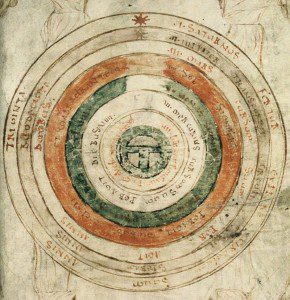
Have you ever found yourself enjoying a book and then stumbled over something so spectacularly wrong that you can’t help but wonder if you’ve been snookered all along?
It’s happened to me a few times. An author goes on about things I know nothing about, and I feel the pleasure that comes with learning. Then he gets into something I happen to know something about and there is this enormous gaffe. Perhaps it is an over-reaction, but I feel betrayed.
Why didn’t the writer just do a little research? Why did he rely on conventional wisdom when the facts are readily available to anyone who cares to know the truth?
Can I trust this guy to be my guide in matters about which I am ignorant when he has proven himself to be unreliable on a subject I know something about?
I had an experience like this just last night watching Youtube.
Yes, I know, Youtube is Youtube. But for many people it is as close to an education as they will come. And some of the channels actually purport to enlighten. And one of those channels is Vsauce.
Vsauce 1-3
Vsauce is actually a series of three channels on Youtube, each with a different host. I like Michael on Vsauce1, but of the three I watch Kevin on Vsauce2 the most. He has a number of series on the channel–probably my favorite is BiDiPi, “Build-It, Draw-It, Play-It” where he highlights the creative work of people around the world. “Mind-Blow” is pretty good too. (And here’s something to note: Vsauce2 has over 3 million subscribers. Think about that as you continue to read.)
On occasion Kevin leaves his scripted formats and he pontificates on some theme with visual aids meant to entertain more than enlighten.
And this is what he published just yesterday. Things were going swimmingly right up to minute, 2.43.
The title, as you can see, is, The Line Between People and Pets. In part, it’s an assault on the evils of “speciesism“–the sort self-congratulations that comfortable people in our post-industrial society can engage in when thinking about their ancestors. While I find the whole thing specious, that’s not what bugged me. I’ve listened to lots of people drivel on about the joys of hunter-gathering over a burger and fries at McDonalds. No, what bugged me was how spectacularly wrong he was about Medieval cosmology.
Geo-centrism = Anthropocentrism?
You know how this goes, you’ve probably heard it dozens of times. Here it is: because people once believed that the earth is the center of the cosmos, they believed that man is the most important creature in the cosmos.
You may even think that it is so intuitively obvious it requires no research to substantiate. But it is wrong, spectacularly wrong. How often should I say it? How about three times? WRONG! WRONG! WRONG!
It was actually the reverse–yes, you read that correctly–being at the center meant you were at the lowest point in the cosmos. (Or pretty close, anyway.)
I’m not making this stuff up. Medieval scholars don’t even debate the matter. It is as well established in those circles as the fact that the earth goes around the sun is in scientific circles.
Here’s C. S. Lewis on the subject from, The Discarded Image—
(To the Medieval mind) “…the spacial order is the opposite of the spiritual, and the material cosmos mirrors, hence reverses, the reality, so that what is truly the rim seems to us the hub. …The Medieval Model is, if we may use the word, anthro-peripheral. We are creatures of the margin.”
Here’s Remi Brague in, The Wisdom of the World—
“The earth is only an imperceptible point, invisible to whoever observes things as a whole. Whoever caries this experiment practically by going up in the sky can see the earth only as an object of scorn,…. (Medieval authors)…see the earth as the concretization of the debris from the higher spheres, and sometimes use powerful images to describe it, such as a sewer.”
The earth is the center to the Medieval mind in the same way as a drain is the center of sink. It is where the waste water goes.
I could have picked on other things in poor Kevin’s video, but this is enough.

Why do people persist in libeling Medieval thought?
Perhaps they’ve read too much Carl Sagan. That gives Sagan too much credit. He was a popularizer and not a terribly deep thinker.
No, I think the real reason is the vital lie.
A vital lie is a falsehood that justifies our prejudices and makes us feel superior. Moderns do it all the time. We take pride in being up to date, which naturally means that we believe the people who lived before us were stupid.
But truly, it gets even worse. When modern people do go back, they like to skip over anything that could call their prejudices into question. They like to go back to things so exotic and distant that they can romanticize them.
Kevin does that with animism in this Youtube video. It goes like this: back in the good old days we respected animals because we believed they possessed spirits. But he fails to deal with the irrational fears people lived with, or how animism inhibits scientific inquiry. But hey, that would make those folk look bad, and those aren’t the people we want to look bad. No, we want medieval thinkers to look bad. And why is that? Because they’re a threat to us–their views on some matters are disconcertingly plausible.
It is simply a fact that western science developed in western culture, and that culture was able to affirm the meaningfulness of the created order. It is a long and complicated story as to how the world came to be desacralized, but again it is a well-documented one. If you’re looking for an authoritative treatment, I recommend, Passage to Modernity by Louis Dupre.
But most modern people don’t want to look into this because many of the things that they praise on channels like Vsauce 2 will be called into question. And worse, their complicity in the things they condemn will be discovered to go much deeper than they wish to acknowledge.
So, why go there when, after all, it is so much easier to libel the dead?












